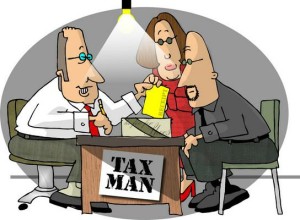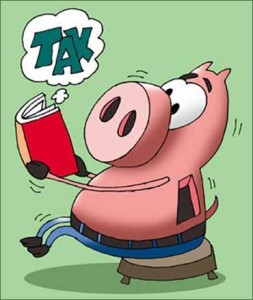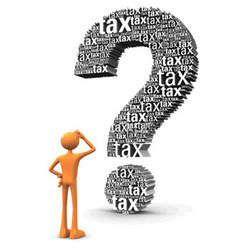Selling Stock? Get Familiar with Capital Gains Tax
 When you see the stock market in movies, it looks easy. It looks like nothing but fun and quick cash (and sometimes illegal substances). And, for sure, the real stock market can offer those things. But the films you’ve been watching often leave out the unsexy details. One of those unsexy details is capital gains tax.
When you see the stock market in movies, it looks easy. It looks like nothing but fun and quick cash (and sometimes illegal substances). And, for sure, the real stock market can offer those things. But the films you’ve been watching often leave out the unsexy details. One of those unsexy details is capital gains tax.
Many people have heard the term capital gains tax. Many know what it is but don’t think it applies to stocks. Well, they do! Here’s a quick rundown of what you need to know about these taxes on your stock sales.
Capital gains tax: a quick explanation
A capital asset is something you own that you use outside of business. The money you’ve sunk into the initial price and subsequent costs are combined and called the basis. When you sell a capital asset, you either make a gain or a loss. If the price at which you sell the capital asset is more than the basis, then you’ve made a profit. And in the government’s book, that means you’ve made a taxable capital gain. The capital gain minus the basis is the total profit. That value is what is going to be taxed via a capital gains tax. When filing your taxes, you need to get yourself a Schedule D (form 1040).
So this applies to stocks?
Yes. Capital assets include land, vehicles, real estate and securities, among other things. Securities include bonds and stocks. If you own stock for personal investment purposes, then it’s a capital asset. The profit you make from the sale of a stock can be taxed by your national revenue agency. So if you want to work out the total money you’re going to pocket after an exchange, you need to calculate capital gains tax.
Are there different types of gains?
There are indeed. There are what we call long-term gains and short-term gains. Short-term gains are the taxable profits you made from the sale of stock you held for less than a year. They don’t benefit from any special tax rate. The value, minus the basis, is usually taxed depending on your income. Long-term gains are the taxable profits you made from the sale of a stock that you held for over a year. The tax rates on these are much cheaper. In fact, if your ordinary income tax is less than 15%, there’s a chance you’ll pay no capital gains tax at all.
Keeping a record
When it comes time to file your taxes, you need to have everything in order. You’re not going to be taxed for every single stock; that’s unreasonable and will hurt the IRS’s calculator fingers. What you need to do throughout the year is work with your stock broker to record all of your gains and losses. These should be arranged into short-term and long-term. Oddly enough, this is when you find out whether or not you actually made a short-term gain or loss in the long run. If all your short-term losses outweigh all your short-term gains, then you’ve made a short-term loss. Whatever the result, put the calculation on Schedule D when you’re filing your taxes.
A loss isn’t a total loss
Revenue agencies aren’t completely heartless. Keep a record of your losses. You can use these losses to offset any future capital gains tax you incur!















